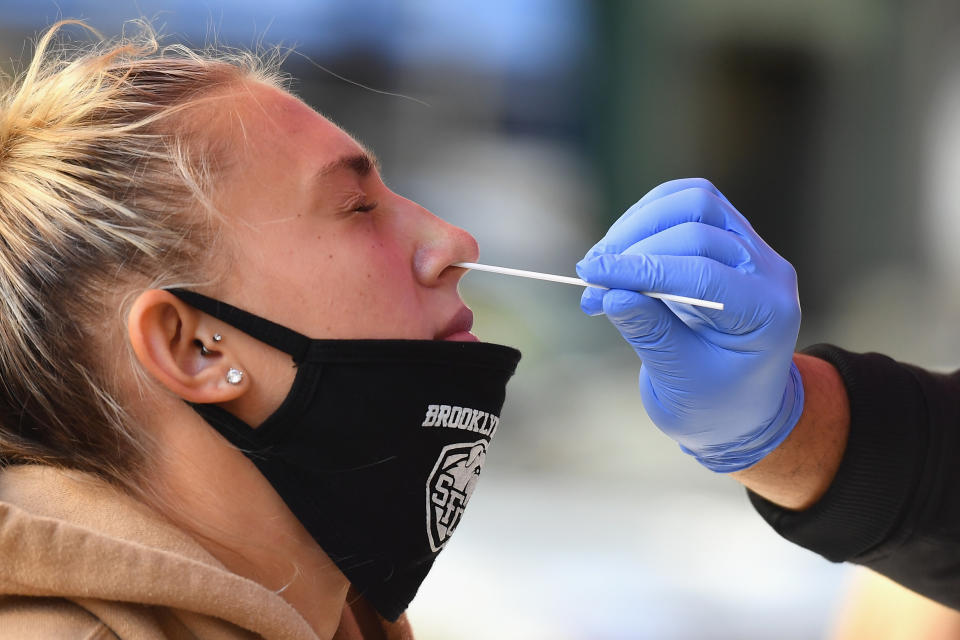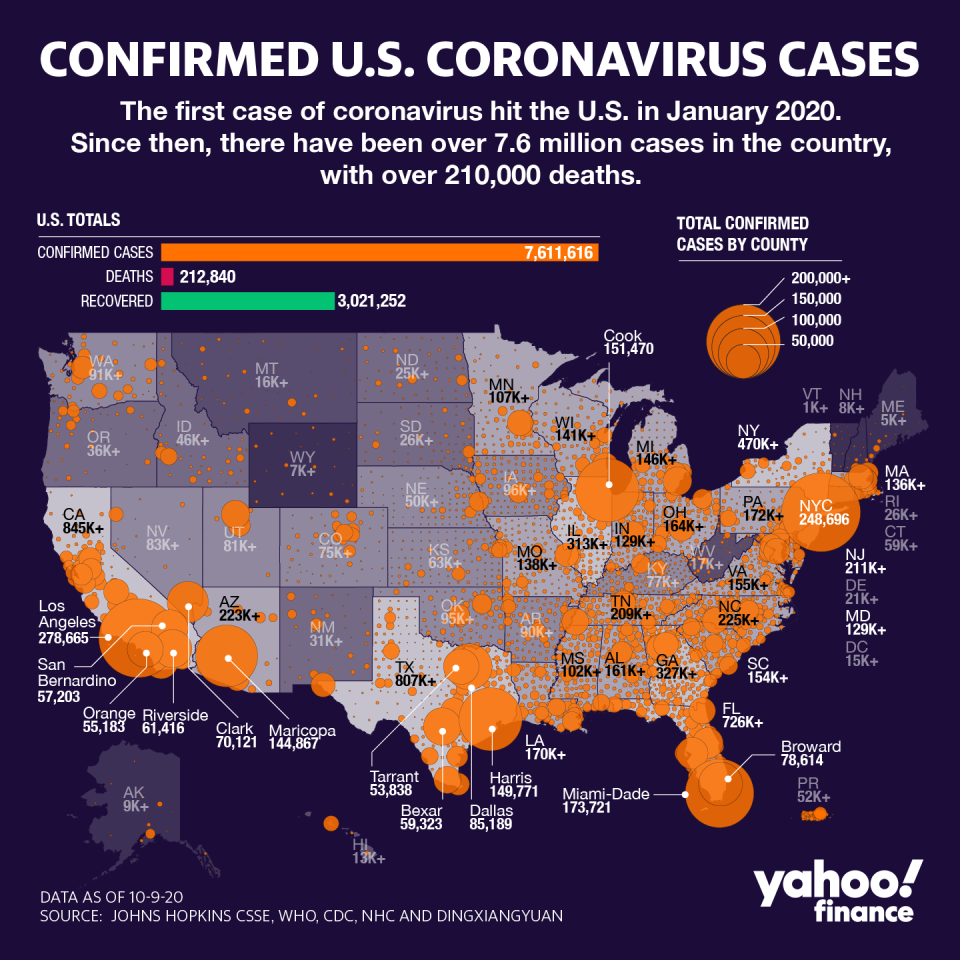Ex-Obama adviser Zeke Emanuel on COVID: 'It's scary. It's going to go up'
Some U.S. states beat back the novel coronavirus after cases spiked in the spring, but public health experts fear winter will bring a second wave of the lethal illness.
The number of cases of COVID-19 is already creeping back up in many states, with an ABC analysis showing Friday increases in 28 states and a seven-day average of more than 44,000 new cases — the highest number since Aug. 21.
“It’s scary. It’s going to go up. It’s hard to believe it won’t go up,” Dr. Zeke Emanuel, a former health policy adviser under President Barack Obama, told Yahoo Finance’s “The Final Round” on Friday.
Winter brings increased risk of contagion largely because cold weather spurs people to go indoors, noted Emanuel, who serves as chair for the Department of Medical Ethics and Health Policy at the University of Pennsylvania. The U.S. Centers for Disease Control and Prevention (CDC) cautions that indoor spaces are more risky than being outdoors, and recent research backs up this recommendation.

In April, researchers in China released a study of 7,324 cases in that country showing just one outbreak occurred outdoors. The outdoor outbreak resulted in just two cases.
“We increase the risk of transmission in closed spaces, indoors ... Going indoors for a prolonged period of time with groups. That is how it’s going to increase the risk of transmission,” Emanuel said. “As winter comes in, people do go inside.”
And if people go inside with new groups of people, we will see more cases of COVID-19, according to Emanuel.
“That’s what has every public health person, including myself, worried about the next few months and the increase in cases and, therefore, the increase in hospitalizations and mortality,” he said.

‘That looks to be the key number for super-spreading events’
The Northeast, in particular, has seen an uptick in cases this fall, with New York City Mayor Bill de Blasio closing schools in nine “high risk ZIP codes” just weeks after they opened. On Friday, New Jersey Governor Phil Murphy announced $60 million in new coronavirus emergency relief funds. That same day, a New York Times analysis showed that, over the past week, the Garden State saw an average of 769 cases a day, marking a 66% spike from the daily average just two weeks ago.
The increases also come as more states relax restrictions — like bans on indoor dining — that have hurt businesses across the U.S. but also kept the virus in check. New York City, once the epicenter of the country’s pandemic, allowed limited indoor dining starting at the end of September.
In his interview with Yahoo Finance, Emanuel noted ways the U.S. can tamp down on cases once again, including by reducing “dangerous events for spreading” such as eating with others inside as well as weddings and funerals indoors. He also recommended reducing the number of people who crowd to 20 or fewer, though New York state now allows social gatherings of up to 50 people in many parts of the state.
“That [20] looks to be the key number for super-spreading events,” he said.
Still, Emanuel said certain outdoor activities should be encouraged, not discouraged, as long as people are six feet apart and wearing masks when possible. For his part, he’s been dining with others outside, spacing tables eight feet apart in front of outdoor heaters and bundling up with blankets.
“You know, we’re planning on doing this as long as we possibly can. But those are the kinds of things we have to adopt,” he said. “Dining with other people indoors, not a good idea.”
Erin Fuchs is deputy managing editor at Yahoo Finance.
Read more:
Less-educated Asian Americans among hardest hit by job losses during pandemic
Trump administration has ‘every right’ to manage information about his COVID: ex-Reagan lawyer
Coronavirus spikes are ‘driven more by our behaviors,’ doctor explains
Follow Yahoo Finance on Twitter, Facebook, Instagram, Flipboard, LinkedIn, and reddit.

